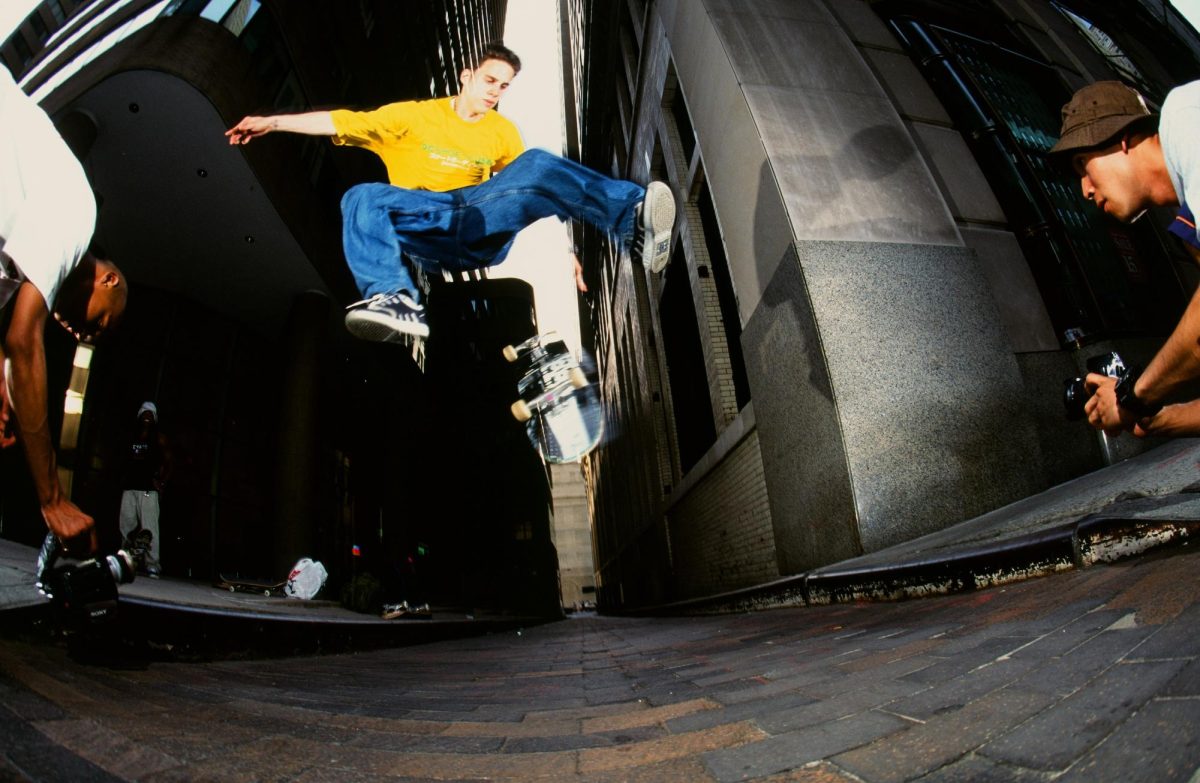Skateboarding is omnipresent. From parks and curbs to parking lots and malls, skate culture knows no bounds — but what about museums?
“Recording the Ride: The Rise of Street-Style Skate Videos,” now on display at the Museum of the Moving Image in Queens, showcases original VHS mixtapes and unseen archival footage that depicts the rise of skate culture in the United States during the late 20th century. The exhibition — open through Jan. 26, 2025 — highlights how skate culture captivated a generation in a pre-internet era and inspired people to reject mainstream norms and vibrantly embrace nonconformity.
“Rising from the roots of the mid-1980s classics, 1990s skate videos refined and cemented an aesthetic that remains foundational to this day,” guest curator Jacob Rosenberg said in a press release. “It’s long overdue for this rich form of cultural and artistic documentation to be explored and presented by a museum.”
The affordability of the new VHS cameras in the 1980s eliminated the barrier to entry for young skateboarding enthusiasts, who chronicled their movements and utilized filmmaking as a form of creative expression to display their personalities. The fisheye lens, which features an ultra-wide angle, created a panoramic viewpoint — capturing the sense of community among this cohort and inviting viewers into this world.
The exhibit honors the late Mike Ternasky, celebrating the former professional skateboarder’s legacy within the skateboarding community. Ternasky founded the skate company Plan B Skateboards in the early ’90s. Inspired by the 1992 men’s Olympic basketball team — nicknamed the Dream Team — Ternasky assembled a superteam of his own, featuring the most talented and influential professional skateboarders to demo his high-quality decks and colorful boards. Dominating the X Games and various other competitions, Plan B quickly became recognizable among skateboarders. Later in 1992, Ternasky released “The Questionable Video,” a nearly hourlong VHS skate film showing the flair and innovation of the five Plan B members. “Questionable” incorporates songs from the Beastie Boys, The Doors and Louis Armstrong. Its eccentric soundtrack helped cement the tape as one of the most groundbreaking skate films ever produced.
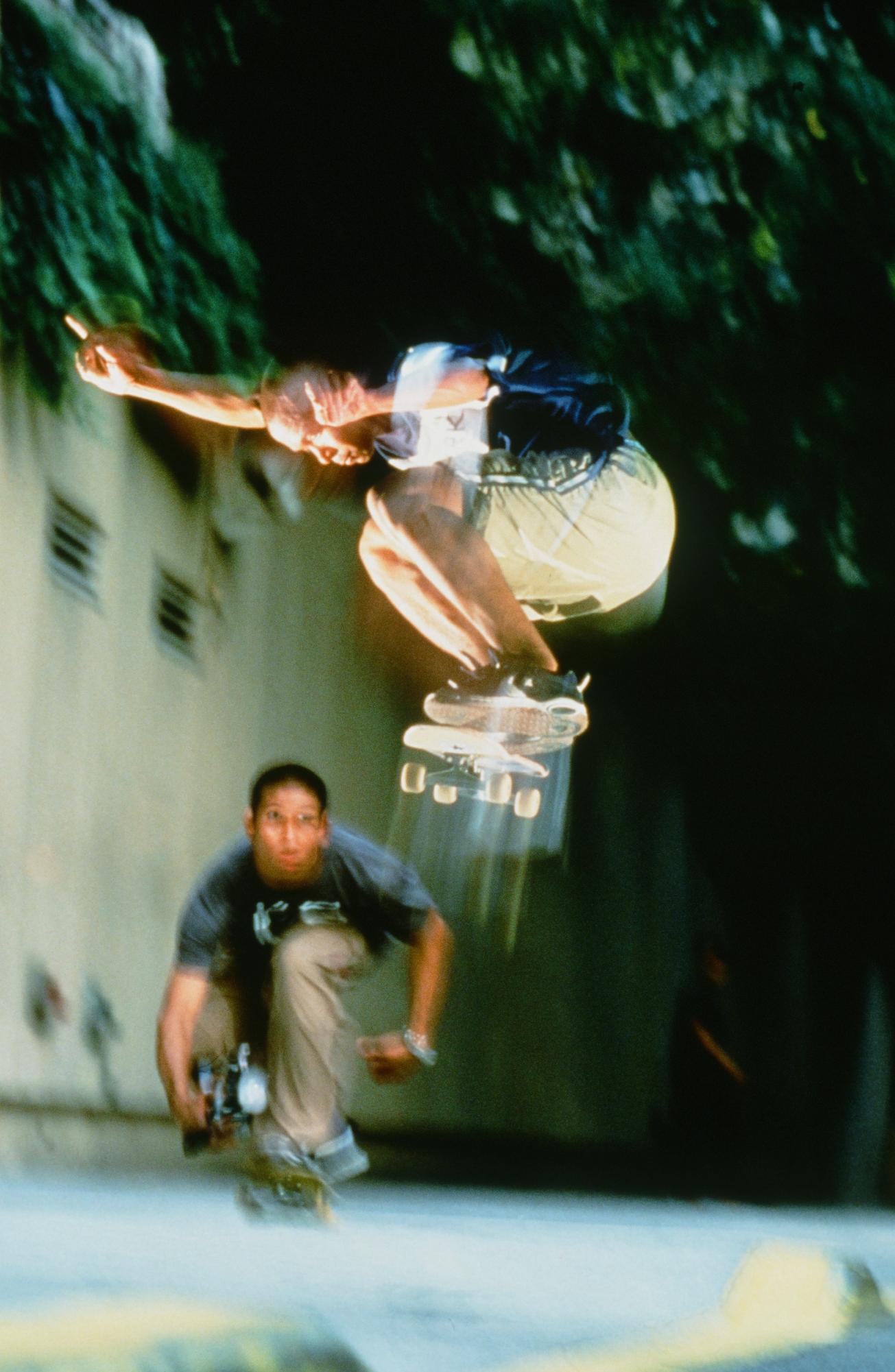
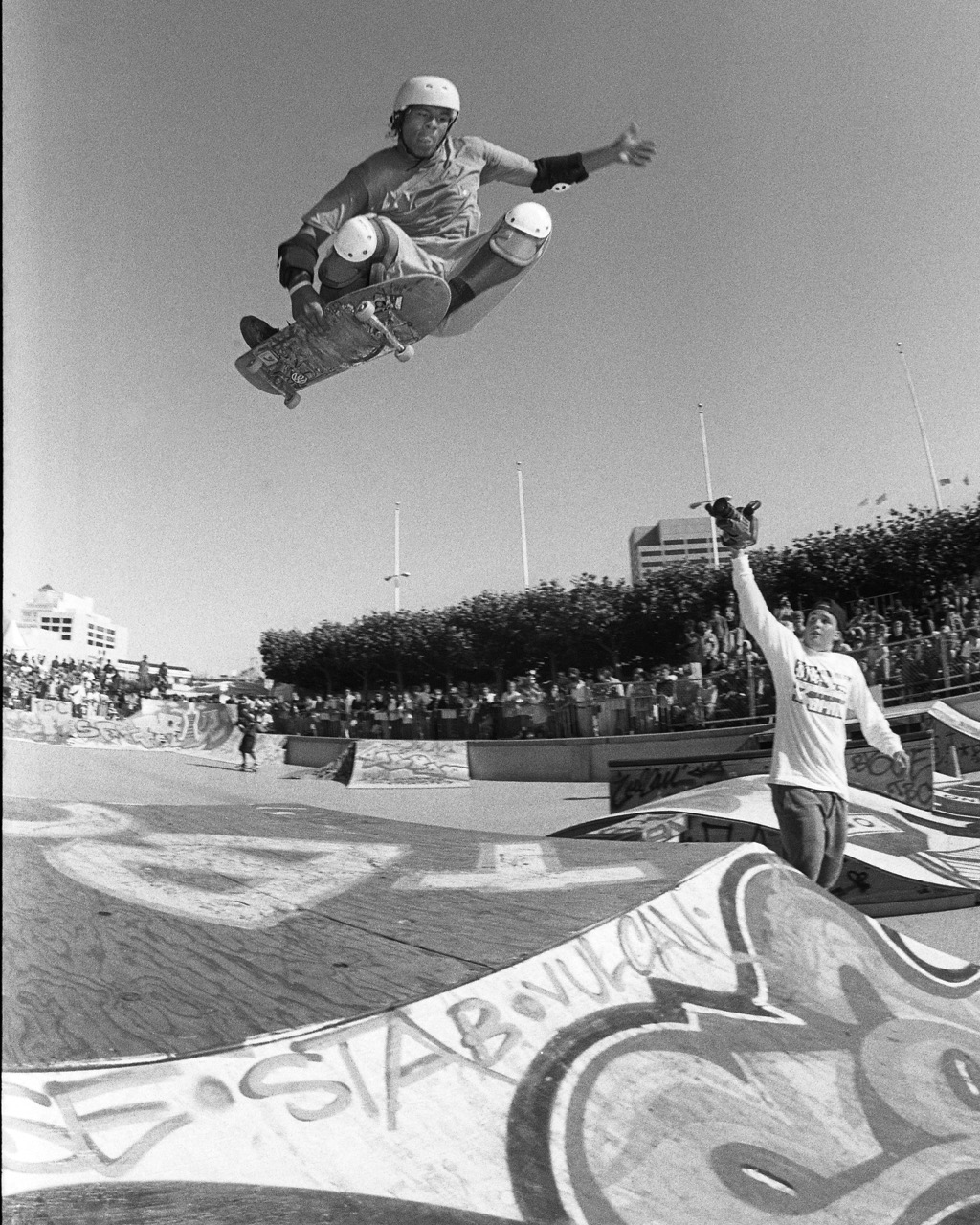
His daughter, Michaela Ternasky-Holland, and mentee Rosenberg collaborated to share the story of VHS’ influence in the MOMI exhibit.
Rosenberg’s journey to becoming a documentary filmmaker began when he dropped out of high school and started working with Ternasky as a director and editor. After filming “Questionable,” Ternasky gave him his editing deck, allowing Rosenberg to create his own films. Ternasky tragically passed away in a car accident in 1994. Rosenberg didn’t meet Ternasky-Holland until she was a first-year at the University of California, Irvine, but the two instantly connected.
“Jacob was the first person to show me clips of my father’s work — the first person who gave me tangible connections to my father,” Ternasky-Holland said in an interview with WSN. “It was the first time I’d heard my father’s voice.”
She explained that Rosenberg became a mentor in her life much like her father had been to him, supporting her through difficult times, such as dropping out of college to pursue a job and coming out as queer.
“[Rosenberg] became somebody I would lean on throughout my 20s, he supported me in a way my family didn’t,” Ternasky-Holland said.
On the 30th anniversary of Ternasky’s death, the two reached out to Barbara Miller, the deputy director for curatorial affairs at MOMI, to propose a screening of the Plan B video. After meeting with them, Miller felt inspired to not only feature the video, but to expand it into a complete exhibition.
“We really saw an important story,” Miller told WSN. “The films became almost totemic objects that united the skate community, making people feel visible and inspired skaters to perform new tricks and techniques.”
With brands like Supreme selling boxy, oversized clothing and street artists such as Public Enemy and N.W.A entering mainstream music, the influence of skateboarding can be found all over contemporary society.
“Let’s not just institutionalize my dad’s work,” Ternasky-Holland said. “Given the platform [of MOMI], let’s work to make the first ever institutional recognition of skate filmmaking a viable form of art in the cinema community.”
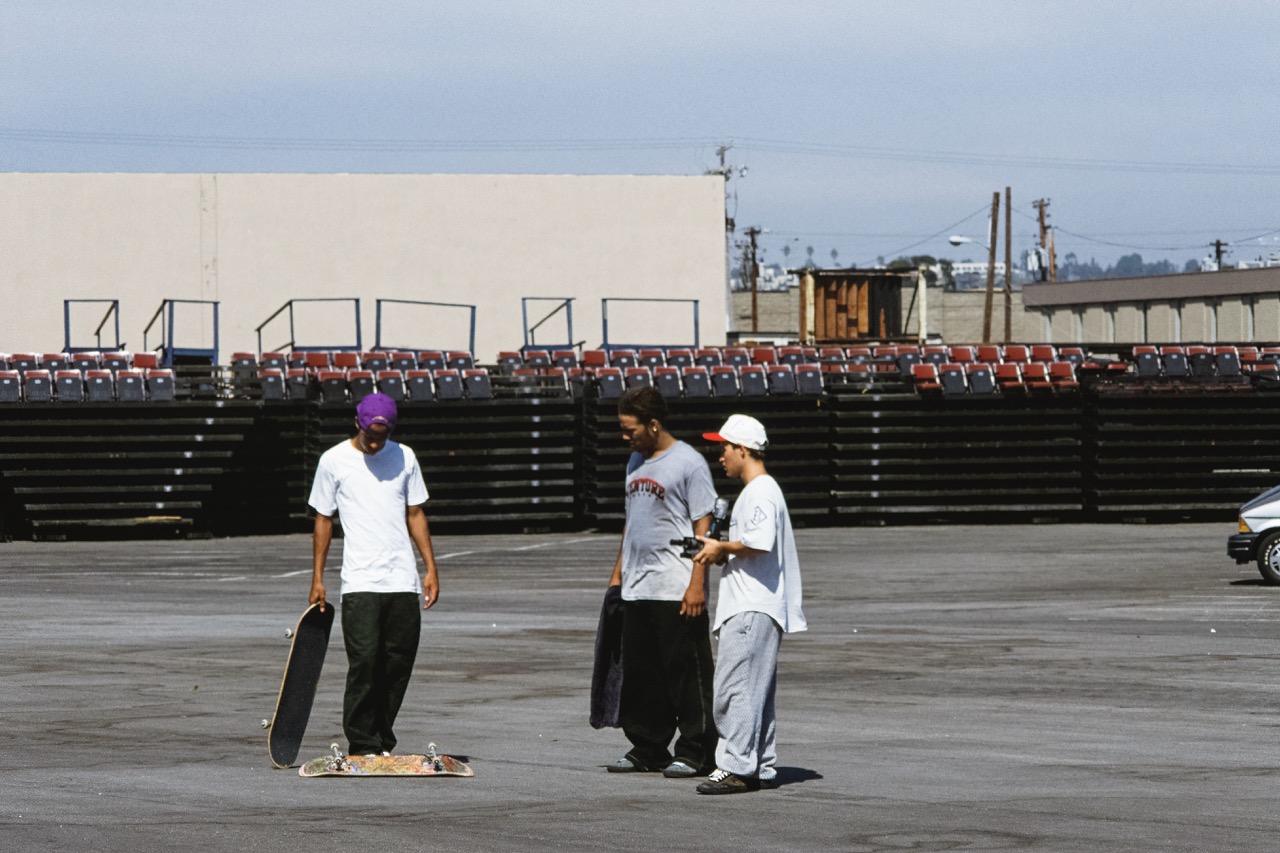
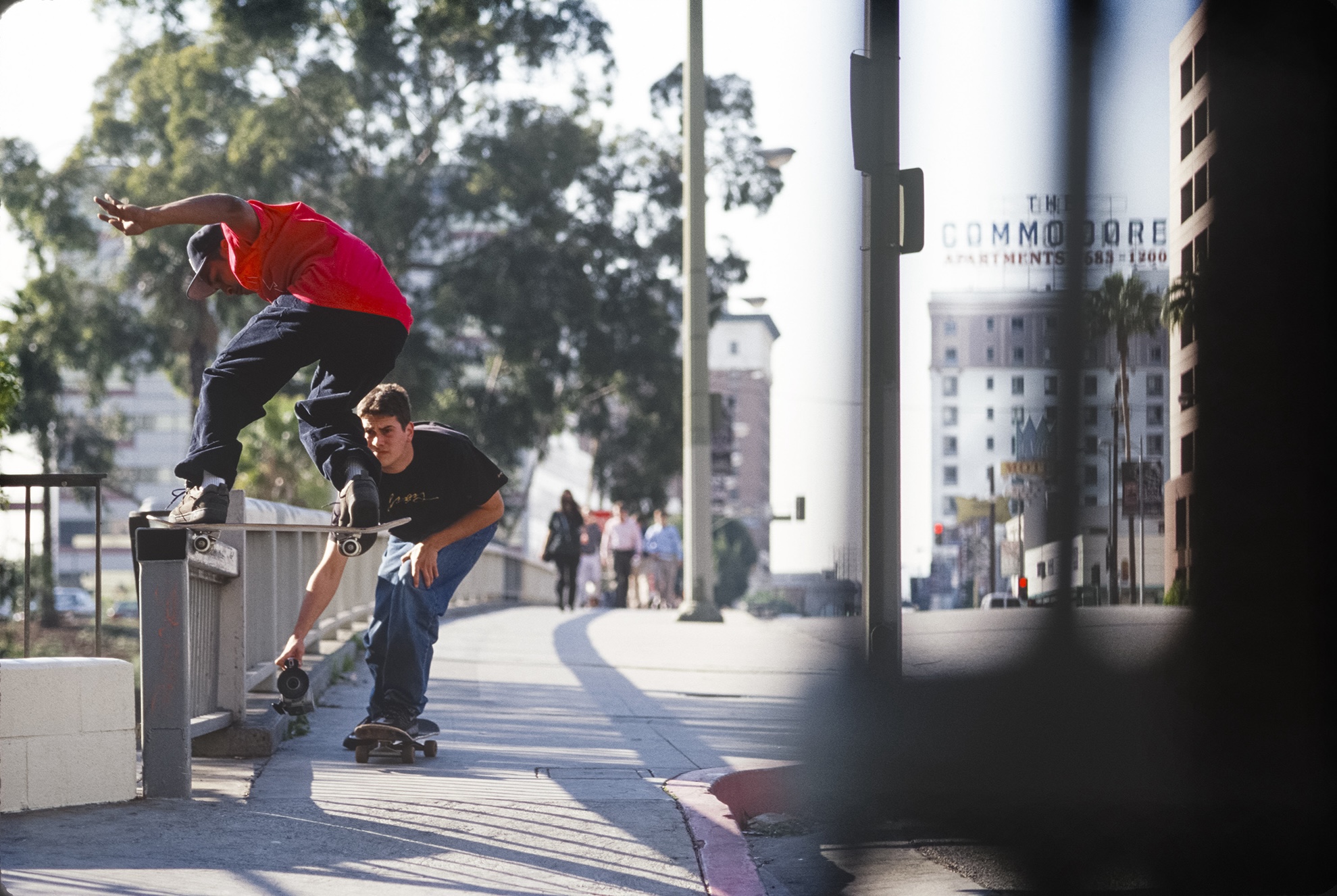
Contact Logan Holland at [email protected].

























































































































































